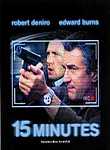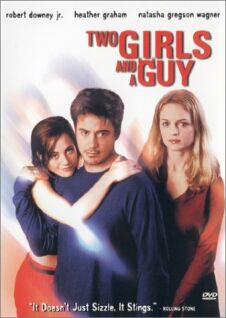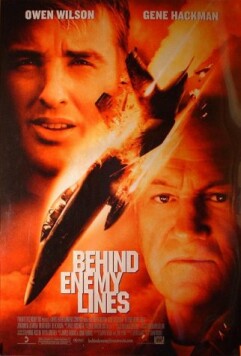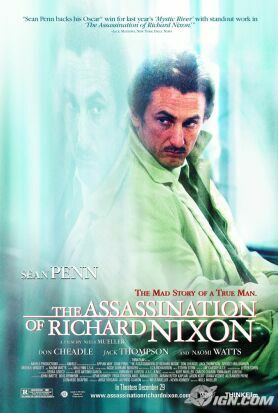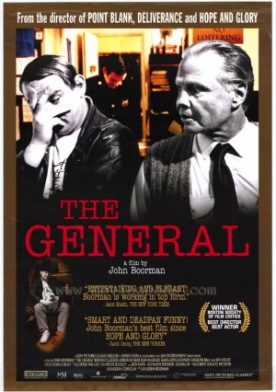Fifteen Minutes
John Herzfeld’s 15 Minutes
makes the typical mistake of movies that attempt to satirize the
celebrity-obsessed media culture of which, inevitably, they themselves are a
part. In fact, so reliably do movies like Oliver
Stone’s Natural Born Killers or
Costa Gavras’s Mad City get it
wrong that the suspicious-minded might be tempted to think that these alleged
“satires”
are actually intended to provide cover for the corrupt and irresponsible media
that are their ostensible targets. Thus, too, in 15 Minutes, the
appearance in cameo roles of Roseanne and Peter Arnett ought to be the tip-off
that, awful as media people may otherwise be, their willingness to acknowledge
their own awfulness and even to make fun of it is the most awful thing about
them. Qui s’accuse
s’excuse, as the
French say, and here’s the proof of
it. Media people in self-critical mode are not really sorry for or ashamed of
what they do but secretly proud of it.
You can tell because they always accuse themselves of the wrong
thing—of having no scruples. In fact
they go through scruples like hairspray.
They’re nothing but scruples.
That’s just the problem. The more they
agonize about the heavy burden of their responsibility to their audience the
more they prove that they are so tightly packed with conscience that you
couldn’t slip a match-head in them
along with it—and obviously anyone so
bursting with conscience can be trusted to do pretty much as he likes. 15
Minutes comes under the heading of yet another redundant demonstration of
the media’s conscience. The talk show
host, Robert Hawkins (Kelsey Grammar) is supposed to be willing to do
anything to get a leg up on the competition, even to pay a murderer in
order to show his murder on screen.
Of course, when it comes to intruding into
someone’s privacy, or using the most
lurid film stock of crime or accident victims, TV news and talk shows are
willing to go pretty far, but we can’t
really believe that even a sleaze like Hawkins would collude with a murderer to
bring his own videotape to the TV screen for the sake of money and publicity.
Apart from anything else, it would make it clear to the world that he was
a sleaze. As the fire chief in this movie says,
“perception is
reality” for these people, and such a
stunt would produce some very bad perceptions. No, the problem
isn’t that they
don’t have a conscience but that their
conscience is always on display—which
means that it isn’t conscience at all
but the show of conscience.
The film does make some effort to catch the appalling sanctimoniousness of
Hawkins, but what it misses is what we should surely see the most of from any
real Hawkins, namely his public agonizing about whether or not he has
“gone too
far” with the things that he has shown
on the air. We hear him saying of his showing of the murder tape that
“I do so with a heavy heart…but, as
a journalist, I am obligated to do
it.” But this is mere hypocrisy. When
the camera is off him the guy has no conscience at all. A real talk show host in
place would really have a heavy
heart—and would really believe in that
guff about his responsibilities as a journalist, not merely use it as a cover
for his drive to win ratings.
In somewhat the same way, the depiction of the Russian murderer, Emil Slovak
(Karel Roden) does not ring true. Conservatives may think that their views are
being flattered when Herzfeld makes this monster say:
“I love America: Nobody is responsible
for what they do” and for seeing at
once the potential for exploitation by the unscrupulous of the idea of
“low
self-esteem.” His plan is to make
himself rich and famous and get himself off several murder raps by
pleading insanity. Or low self-esteem.
“We are
insane,” he says in broken English;
“who else but crazy man would film
their crimes?” But when the camera is
off him he exults that “because of
your double jeopardy law, we can’t be tied for the same crime twice. We come out
free, rich and famous.”
“You think a jury will believe
that?” he is asked.
“You watch crybaby talk shows all
day long,” he says.
“Americans will believe; they will cry
for me.” And it begins to look as if
he’s right, too, until he makes what
might seem the rather obvious mistake of selling his story to the media before
he is put on trial. Presumably, Herzfeld is letting his story run a bit long
and hasn’t got the time for a trial.
Either that or he’s fudging the fact
that there are several laws which would prevent Emil from exploiting the system
in the way that he plans, or hamstringing the police as he does with the help of
the media and his crooked lawyer. By pretending to ourselves that even a
ruthless killer like this could work the system to make murder pay we lose sight
of the things that less luridly presented villains actually can do to
exploit and corrupt the system. Could that have been the intention of this
wildly exaggerated fable?
Discover more from James Bowman
Subscribe to get the latest posts to your email.

